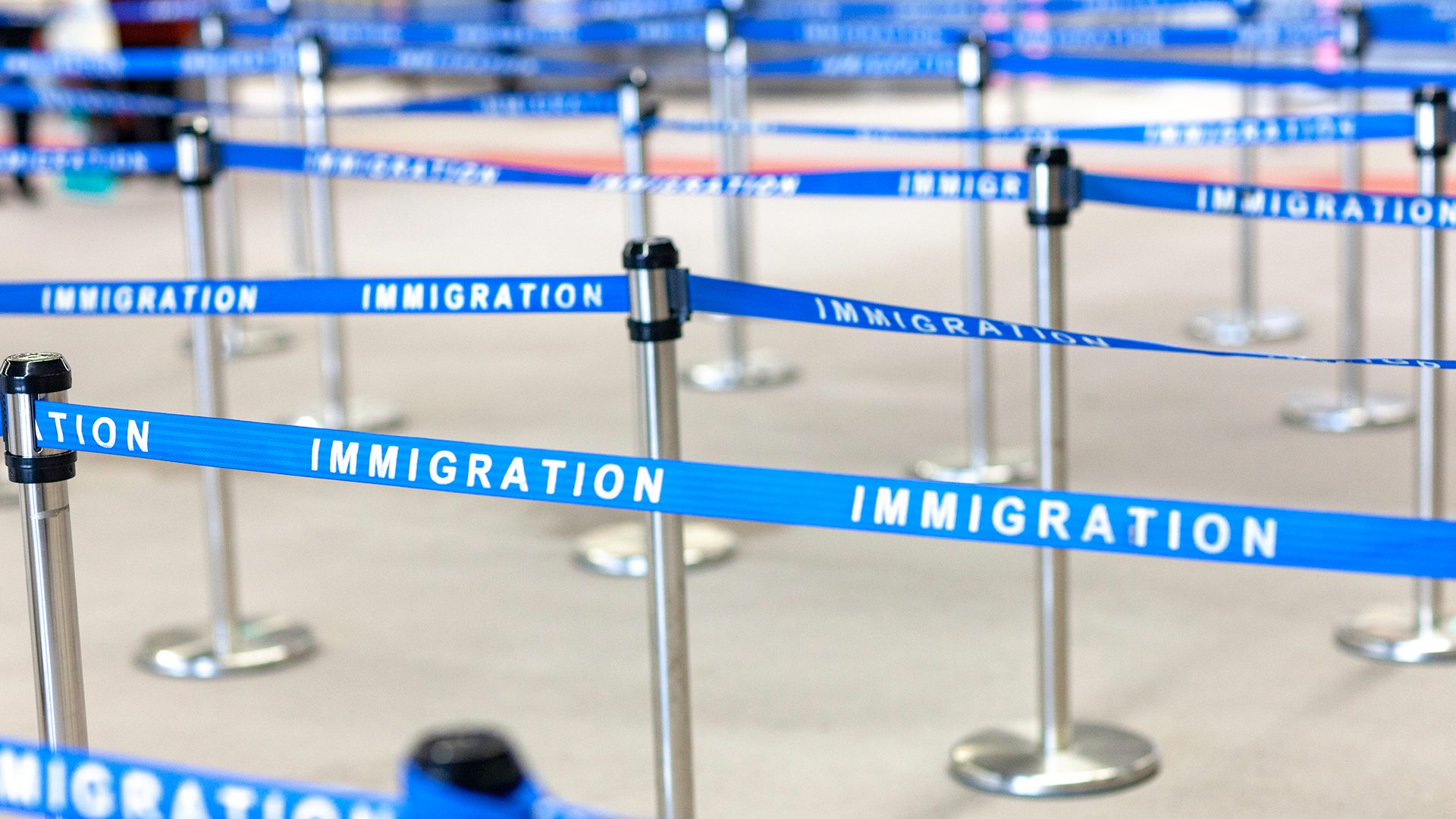- October 28, 2021
- By Carrie Handwerker
Visa policies in the United States hold immigrants back from starting new ventures, restrict their employment choices early in their careers and can limit their entrepreneurship later, a new University of Maryland study has found.
In a paper published online Tuesday in Organization Science, Rajshree Agarwal, the Rudolph Lamone Chair of Strategy and Entrepreneurship and director of the Ed Snider Center for Enterprise and Markets, and colleagues reveal how strict immigration requirements can create narrow career paths, preventing immigrants from launching new businesses early on and keeping them in their specific field of education in jobs within established firms.
The researchers used data from the National Science Foundation’s Scientists and Engineers Statistical Data System, which tracks the careers of science and engineering graduates from U.S. universities, many of whom came from other countries. They found significant differences in early-career employment choices of people with immigration-related restrictions—foreign nationals with temporary work visas upon graduation—and those without constraints, including U.S. nationals and immigrants with permanent residency status or U.S. citizenship.
The research shows that visa-constrained immigrants are less likely to become entrepreneurs at graduation.
“Due to these visa restrictions, students trained in our own universities end up being narrowly confined in their work options, and cannot exercise their preferences for entrepreneurship early on,” said Agarwal.
She worked with co-authors Martin Ganco of the University of Wisconsin and Joe Raffiee of the University of Southern California with support by a grant from the Kauffman Foundation.
To maintain their immigration status, current laws require that newly graduated immigrants either obtain a permit for optional practical training after graduation to obtain further expertise in their field of study, or be sponsored by the firm that hires them. Those requirements restrict most immigrants who want to remain in the United States to jobs in organizations in fields closely matched to their educational training, rather than branch out in response to a changing job market or changing interests on their part. Workers essentially become pigeonholed in one field.
Overly restrictive immigration regulations also have lasting effects, the researchers found, because immigrants are less likely to develop the broad breadth of skills needed for later entrepreneurship.
“Thus, by taking individuals down a path of focused skill development, work experience in job-education match may leave individuals unequipped with the requisite array of broad skills needed to ‘wear multiple hats’ as entrepreneurs often do,” the researchers wrote.
Agarwal and her co-authors showed that when immigration-related work constraints are lifted—that is, when immigrants receive permanent residency status—those in jobs related to their education are more likely than comparable U.S.-born workers to found incorporated new ventures, which tend to be the type of firms that do well, grow and create the most jobs.
Agarwal noted that investors of Zip2, Elon Musk’s first startup, realized that he did not have a green card and helped secure him “EB-5 immigrant investor” status in order to be compliant with regulations. “Musk then proceeded to launch several highly successful startups, including PayPal, Tesla and SpaceX.” she said.
Entrepreneurial-minded employees—like Zoom founder Eric Yuan, who worked at Cisco, often have new ideas that can’t be implemented within the firm for a variety of reasons, she said. “Having the freedom to take these ideas that are not being utilized to the fullest potential or used alternatively, is a very important source of entrepreneurial dynamism.”
Even if potential reform only reduces time lags rather than removes the restrictions altogether, everyone would benefit by allowing immigrants to exercise their entrepreneurialism, Agarwal said.
“Not only are they better off, more importantly the economy is better off because you get access to products and services that these experts create so much faster,” she said. “The longer immigrants have to wait, the lower the benefits to the economy.”
Topics
ResearchTags
Immigration